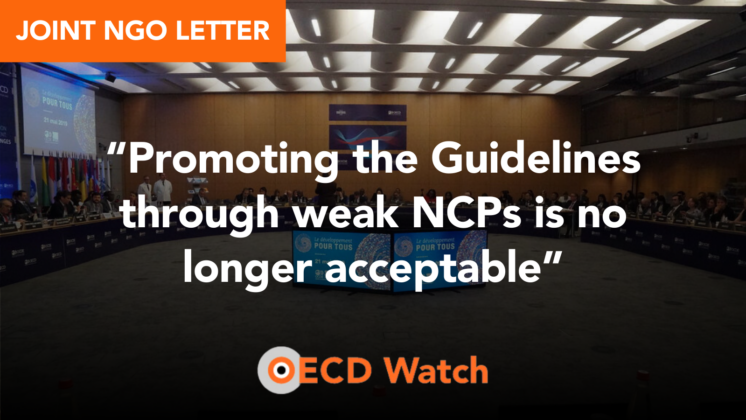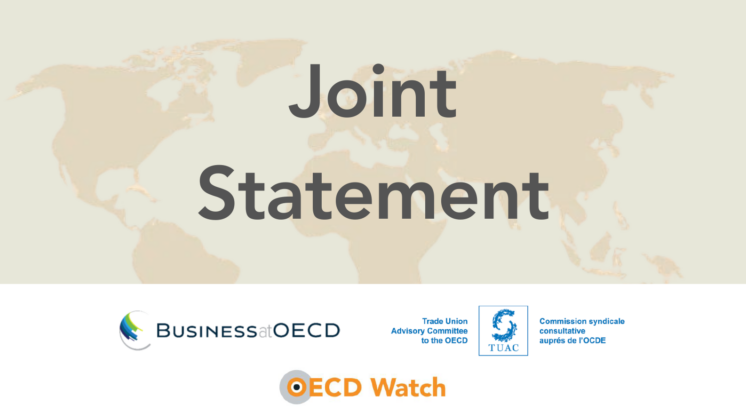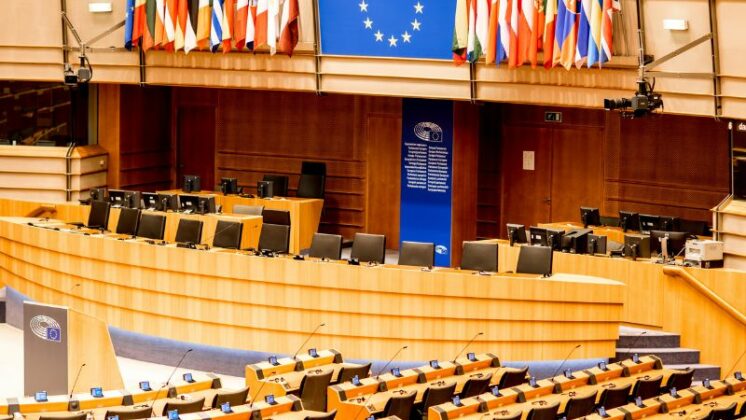A new UN advice clarifies the application of the UN Guiding Principles on Business and Human Rights to key financial instrument of relevance to OECD Guidelines case involving UBS and Hikvision.
 Photo: Samuel Huron | Flickr
Photo: Samuel Huron | FlickrIn a letter to BankTrack and OECD Watch, the UN’s Office of the High Commissioner for Human Rights (OHCHR) has confirmed that banks do have responsibilities when it comes to the impacts of companies in which they hold shares on behalf of clients. Banks have often argued that they have little or no responsibility where the bank’s client is the “beneficial owner” of the shares, although the bank typically arranges the share purchase, is publicly listed as the owner of the shares and often allows its client to invest in the company anonymously.
The advice, which did not refer to any specific banks or investments, was requested by BankTrack and OECD Watch following a decision by the Swiss National Contact Point (NCP). The NCP decided to accept only part of a complaint filed by the Society for Threatened Peoples (STP) against Swiss bank UBS regarding its business relationship with Hikvision, a company that is aiding China’s mass surveillance and genocide of Uighurs.
The NCP determined in its initial assessment that “in relation to UBS’s role as custodian for Hikvision shares on behalf of clients … no business relationship between UBS and Hikvision exists.” In a response to the NCP’s assessment, BankTrack and OECD Watch described the decision as “deeply problematic” and urged the Swiss NCP to reconsider its position. Regrettably, the NCP did not take any follow-up action, and does not operate an appeal procedure.
The OHCHR was asked to respond to two questions. Firstly, whether the relationship between a financial institution (FI) and a company in which it holds shares on behalf of a client as a custodian or nominee shareholder constitutes a ‘business relationship’ under the UN Guiding Principles on Business and Human Rights (UNGPs). Secondly, if they do, how should the FI ensure that it meets its responsibility to respect human rights, particularly in cases of severe human rights impacts.
‘Business relationship’
In response to the first question, the OHCHR stated that “purchasing and holding shares of an investee company constitutes a ‘business relationship’ between an FI and an investee company under the Guiding Principles” and it “appears to be no less the case that purchasing and holding shares in an investee company constitutes a linkage between the FI’s ‘operation, product or service’ and the investee company when the FI does so at the request and on behalf of a client.”
Elaborating on this point, the OHCHR explained that the UNGPs only require “that there is a direct link between [the FI’s] service and the investee company” and this “direct link is created by the fact that the service entails holding and trading shares in the investee.” Furthermore, it is noted that the UNGPs intentionally provide an expansive definition of business relationships with no reason to exclude a “potentially large swath of products or services” included in the value chain of the financial sector, stating that, if this was the case it could create an incentive for FIs to conduct transactions in certain formats in order to avoid scrutiny and accountability.
Two-pronged approach
In response to the second question, the OHCHR stated that bank policies setting out “how the FI embeds human rights criteria across its activities, products, and services” should “include services such as nominee shareholding.” It is noted that the “limited visibility of human rights risks inherent to the construction of certain financial services”, such as nominee shareholdings, does not negate the FIs responsibility to conduct human rights due diligence for this type of transaction.
The OHCHR outlines a two-pronged approach to assessing actual and potential adverse human rights risks in the context of nominee shareholding. Firstly, FIs must assess the risks connected to its beneficial owner clients. If an FI identifies risks associated with its clients, “or where there is a particularly high risk section of its nominee shareholder portfolio…the FI should undertake due diligence on high risk investee companies.” Where this process leads to the identification of risks or adverse impacts, the FI is expected to use and build its leverage firstly with the beneficial owners through, for example, including contractual clauses in nominee shareholder agreements clarifying human rights expectations or allowing the FI to exit the relationship where efforts to prevent or mitigate harms fail. Where the FI cannot use or build leverage with the beneficial owner, it should then engage investee companies.
It is noted that, as per the UNGPs, in a situation where the FI does not have the leverage to prevent or mitigate the adverse impacts and is also unable to increase its leverage, “it should consider ending the relationship, taking into account credible assessments of potential adverse human rights impacts of doing so.” Furthermore, the OHCHR set out that the FI is expected to “formally report” how they address severe human rights risks and adverse impacts connected to its activities, products and services.
Joseph Wilde-Ramsing, Senior Adviser to OECD Watch, said: “This important advice and clarification validates the concerns raised by STP in the original OECD Guidelines complaint regarding UBS’s direct links to abuses caused by Hikvision. In addition, because the UN Guiding Principles and the OECD Guidelines have historically been aligned, this clarification highlights the need to have a thorough discussion within the OECD on passive investments and due diligence.”
Ryan Brightwell, Human Rights campaign coordinator at BankTrack, commented: “The UBS case is not the first time banks have attempted to avoid their responsibilities where they act as custodians of shares in companies with damaging impacts. This issue comes up time and again, and the argument from banks that they have no relationship with the companies concerned flies in the face of common sense. That’s why this clarification from the OHCHR relating to the UN Guiding Principles is so welcome, and we hope it will be influential in ensuring banks extend their environmental and human rights due diligence to include custodian shareholdings.”














